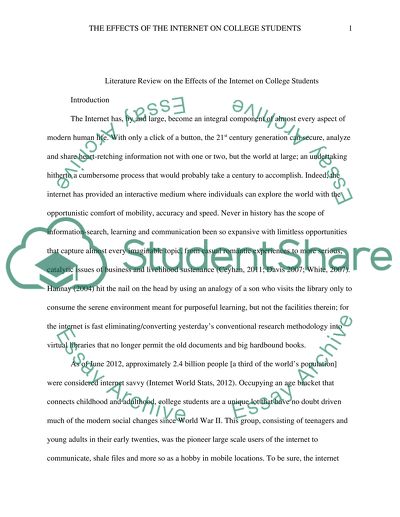Cite this document
(“Effects of the Internet on College Students Literature review”, n.d.)
Effects of the Internet on College Students Literature review. Retrieved from https://studentshare.org/psychology/1472868-effects-of-the-internet-on-college-students
Effects of the Internet on College Students Literature review. Retrieved from https://studentshare.org/psychology/1472868-effects-of-the-internet-on-college-students
(Effects of the Internet on College Students Literature Review)
Effects of the Internet on College Students Literature Review. https://studentshare.org/psychology/1472868-effects-of-the-internet-on-college-students.
Effects of the Internet on College Students Literature Review. https://studentshare.org/psychology/1472868-effects-of-the-internet-on-college-students.
“Effects of the Internet on College Students Literature Review”, n.d. https://studentshare.org/psychology/1472868-effects-of-the-internet-on-college-students.


